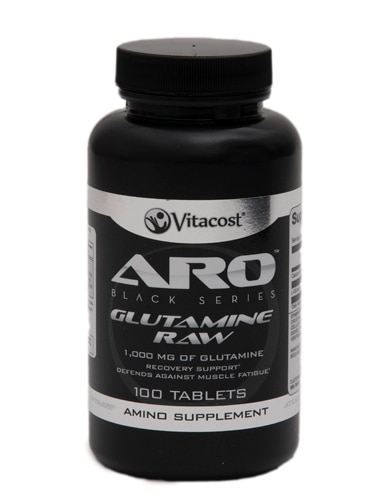There are a lot of amino acids – 20 to be exact. They are classified as either essential or non-essential. In nutrition, ‘essential’ refers to a nutrient that is not made in the body in sufficient quantities, so you must consume it through your diet or dietary supplements. ‘Non-essential’ means the body produces enough on its own.
However, there are circumstances when non-essential amino acids become essential. These are known as conditionally essential amino acids – and glutamine is one of them.
What is Glutamine?
Glutamine is the most abundant amino acid in the body. Classically speaking, glutamine is conditionally essential under extreme conditions, such as severe burns or sickness. When the body is under such duress, the enzyme that degrades glutamine (glutaminase) is stimulated. An increase in the breakdown of glutamine (and, thereby, muscle protein), compromises the body’s ability to sustain glutamine production. In these cases, a glutamine supplement may be necessary.
Burns and illness are not the only cause for concern, though. Intense physical exercise can mimic these conditions, which is why glutamine has been recently studied with regard to body composition, muscle recovery and immune system health.
Let’s take a closer look at these potential relationships and what they might mean for the health of your active body.
Glutamine and Body Composition
Unfortunately, research on the relationship between glutamine and body composition is lackluster. Despite this amino being a precursor of muscle protein synthesis (the making of protein), studies have not proven glutamine to help promote lean muscle nor prevent the loss of lean mass during a weight-reduction plan.
In most studies, participants were given low doses of glutamine – only 0.3 to 0.9 grams per kilogram of body mass per day. But even in high doses for six weeks, glutamine did not improve lean body mass or fat mass, compared to the placebo.
That said, body composition largely depends on a person’s total protein consumption, daily caloric intake and exercise routine. However, most studies related to body composition have been conducted on trained athletes. Supplementing with glutamine may have a completely different effect on overweight or obese populations, but more research is needed.
Glutamine and Muscle Recovery
On a more promising note, glutamine has shown to have slightly more influence over muscle recovery. One study of 15 recreationally trained men found that glutamine supplementation reduced loss of strength and muscle soreness following eccentric exercise.
Interestingly, glutamine may work differently in men than in women. A small study from the International Journal of Sport Nutrition and Exercise Metabolism sampled 16 physically active men and women (eight of each) and gave them 0.3 grams glutamine per kilogram body mass one hour before exercise and again one, two and three days after exercise. Both men and women experienced significant reductions in muscle soreness. However, the men were able to recover their strength, while the women were not.
Glutamine and Immune Health
Glutamine is one of the few amino acids metabolized in the intestines. Because gut microbiota has shown to be important for immune health, there may be a correlation between glutamine and immune system function.†
To support this hypothesis, a 1996 study looked at glutamine for immune health in ultra-marathoners and marathoners. The result? Seven days following strenuous exercise, “the percentage of athletes reporting no infections was considerably higher” in those supplementing with glutamine than in the placebo group.
Other studies on the relationship between glutamine and immune health are based on the idea that consuming glutamine at certain doses (0.25 – 0.9 g glutamine/kg body mass) may decrease inflammatory markers in extreme endurance athletes.
More recently, however, a 2018 systemic review and meta-analysis concluded that “glutamine supplementation has no effect on athletics immune system, aerobic performance, and body composition.” The review did find that “glutamine resulted in greater weight reduction.”
So, what does glutamine do?
The studies may leave you perplexed regarding the benefits of glutamine. But there are significant insights you can glean from the scientific community. While there is a lack of evidence that glutamine will build lean body mass, this amino acid may play an important role in muscle recovery for men and women. And if you’re training for your first extreme event, like an ultra-marathon, glutamine may support immune health.†
†These statements have not been evaluated by the Food and Drug Administration. These products are not intended to diagnose, treat, cure or prevent any disease.




